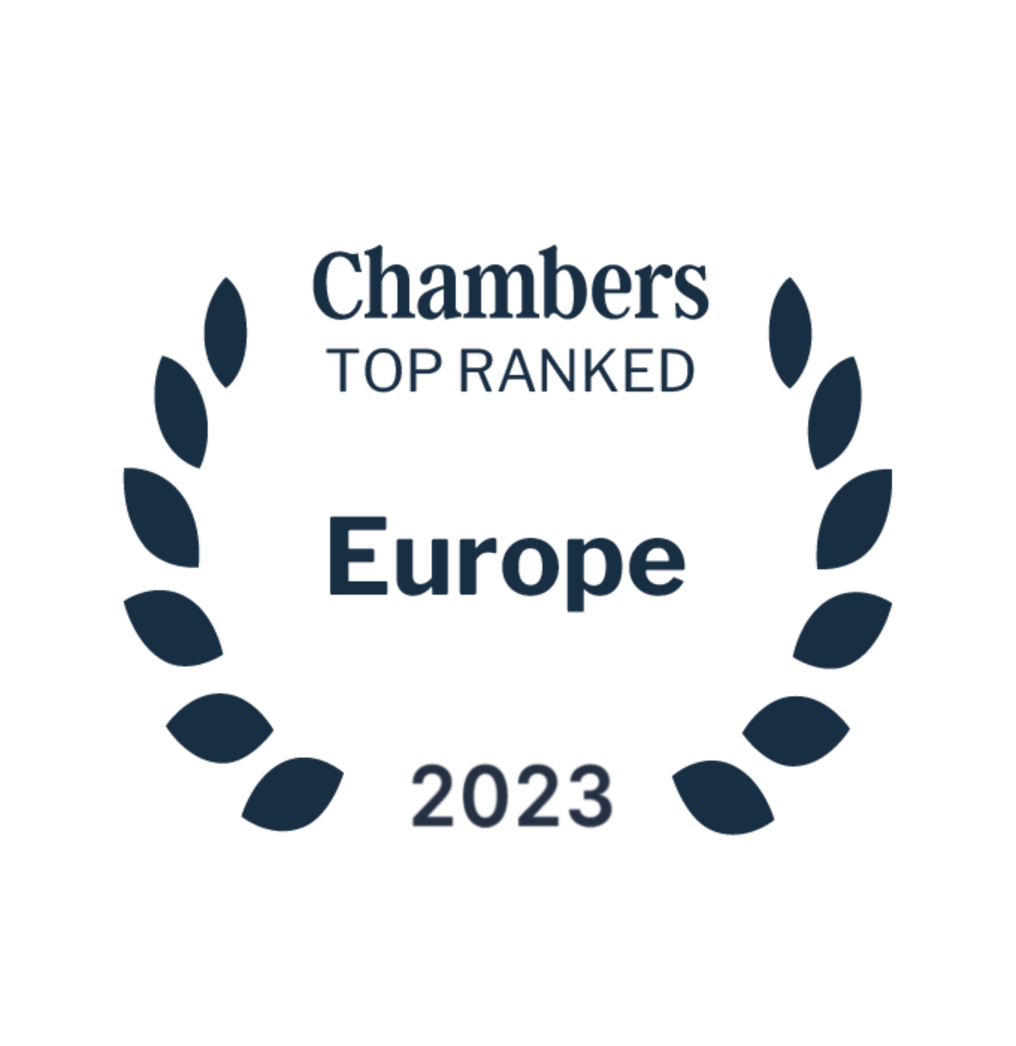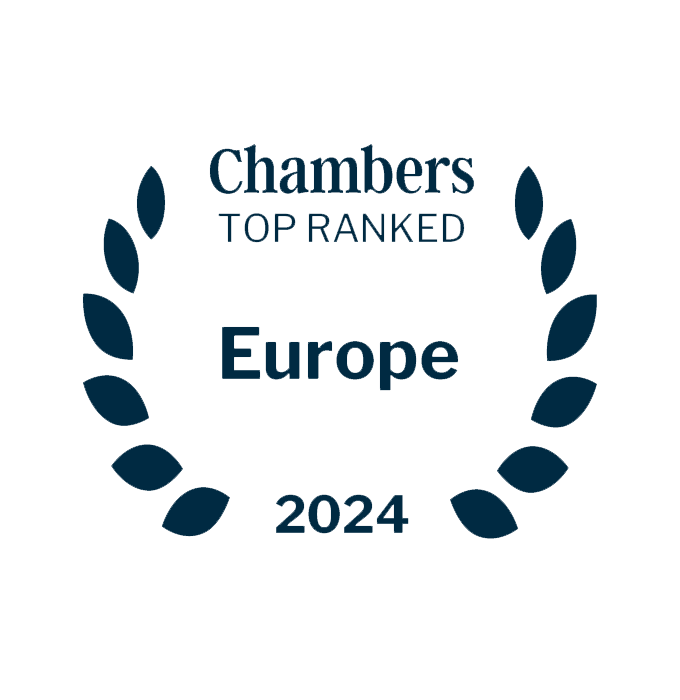Product advertising through Spanish football clubs’ sponsorship and upcoming limitations on the regulatory landscape
Sports sponsorship has lately become a considerable profitable source of revenue for football clubs and its growth, at least prior to the COVID-19 global crisis, has continued to be irrepressible.1
In recent years in Spain, there has been a considerable increase in the sponsorship of football clubs and toplevel players by betting companies and financial entities offering and marketing complex financial products (forex, contracts for differences [CFDs], binary options and cryptocurrencies, among others).
For the current 2019-2020 season, it is noteworthy that six clubs participating in La Liga Santander (Spanish first division) are sponsored by financial entities either by including advertising on sports kits2 or acting as commercial partners3 and, as much as, nineteen4 have also contracte commercial partnerships involving betting companies (seven of them including advertising on their sports kits).
However, in the upcoming seasons, this landscape of comercial partners related to betting and financial entities might be affected as a result of the latest regulatory developments in Spain as well as in line with other European countries.
Introduction
Sports sponsorships have evolved in the last years to surpass traditional advertising. Today the intention is to associate a brand with a particular sporting event or sports club, tying together the philosophy, fair play, players and fans and permeating the brand with the spirit teamwork and the competition. The audience is massive, and sports sponsorship creates an emotional “connection” between the brand and the sponsored entity.
Under Spanish Law, the concept of sponsorship agreement is defined in Article 22 of the Ley 34/1988, de 11 de noviembre, General de Publicidad (Advertisement Act) as the “contract for which the sponsored entity, in exchange for financial aid for the realization of its sporting, charitable, cultural, scientific or other activity, undertakes to collaborate in the advertising of the sponsor”. Said definition is also framed by the modality of “Advertisement Placement Agreement” (“Contrato de Difusión Publicitaria”) as defined in Article 17 of the Advertisement Act.5
Those definitions together with longstanding and evolving practice are the main elements of the sponsorship agreement under Spanish Law:
- Traditional atypical agreement: such agreement is not regulated beyond the definition provided in the Advertisement Act, so it will also be governed by ordinary law, general contractual rules contained in Section IV of the Spanish Civil Code and party autonomy ex Article 1255 of the Spanish Civil Code;
- Bilateral: this includes reciprocal obligations on the part of both parties;
- Consensual: the agreement is executed solely by the parties’ mutual consent and no specific form is required, although it is always advisable to draft and enter into a written agreement;
- Onerous: the advertisement is carried out in exchange for a pecuniary remuneration or remuneration in kind;
- Intuitu personae: such element is of the outmost importance within the scope of sponsorship agreement due to the close association between the Brand and the sports entities in the eyes of the massively targeted audience.
Considering the aforesaid elements under Spanish Law and its atypical nature, parties can almost freely define and determine the content of such agreements with the key element being to ensure the brand’s exposure throughout the life of the agreement and prevent mechanisms for early termination or renegotiation of the terms of the agreement if the balance of fairness between the parties is undermined due to a force majeure event or critical amendments in the regulatory landscape. This is even more important in the current market situation where brands and rights holders usually enter into longer and more valuable deals.
Compared with traditional advertising, sponsorship offers a wider scope of activities and collaborations to enhance a brand’s exposure. As an example, and for the purposes hereof, the advertisement pursued by a certain brand within the scope of a football club’s sponsorship agreement is not limited to featuring the name of the brand on the kit used by the football clubs as it was in traditional advertising. It also includes inter alia outstanding mentions on the football club’s website, players partaking in commercials and marketing events organised by those companies, special discounts offered to members of the football clubs they sponsor and many others. Although this may be deemed very positive from a commercial point of view for sports actors offering attractive and wider sponsorship packages, it also entails additional risks and limitations since audiences are global, highly and emotionally engaged and demographically diverse.
This has been a key element both for Spanish and European authorities to target the activity of betting and financial companies considering the risk of the offered products and its massive exposure through these deals.
Latest regulatory developments affecting football clubs’ sponsorship by betting companies
Since its election in January 2020, the new coalition government in Spain announced its intention to regulate and restrict the activity and promotion of betting operators in Spain6, a matter that has been in demand for several years.
In this vein, on 24 February 2020, the Minister of Consumers Affairs in Spain (a newly created ministry with delegated powers pertaining to the Ministry of Health and Finance) published the Draft Royal Decree on Commercial Communications for Gambling Activities7 (“Proyecto de Real Decreto de Comunicaciones Comerciales de las Actividades de Juego” [Royal Decree Draft]).
The aim of this Royal Decree Draft is to develop the existing Articles 4 (Lottery), 7 (Advertising, sponsorship and promotion of betting activities) and 8 (Consumer protection and responsible gambling policies) enshrined in the current Act 13/2011, of 27 May 2011, gambling regulations (Gambling Act) which have not been developed since 2011. These provisions provide the conditions under which entities holding the necessary enabling license to carry out gaming activities in Spain, may undertake the advertising, sponsorship and promotion of their activity. On the other hand, they also establish the conditions under which responsible gambling and consumer protection policies must be implemented.
Although said Royal Decree Draft is at a preliminary stage and a public information process8 was opened until 16 March 2020 (now suspended temporarily due to the COVID-19 pandemic) meaning that additional amendments might be introduced until its final approval and entry into force (initially planned for July 2020 before the COVID-19 pandemic), as of this date, we can already find an important set of new regulations which might affect the promotion and sponsorships deals entered into between betting companies and football clubs in Spain.
In this regard, below you will find the main limitations and restrictions included in the Royal Decree Draft, focusing on those that might impair the exposure of brands in their ongoing sponsorships deals with football clubs competing at a national level:
- In general terms, broadcast advertisement on gambling and betting will be restricted via TV and radio between the 1 am and 5 am slot (both in broadcast and face-to-face events). This restriction does not apply, in accordance with this preliminary version of the Royal Decree Draft, to streaming, social media and on-demand platforms with certain exceptions.
- As an exception to the above, advertising may be broadcasted and permitted during sporting events between 8:00 pm and whilst the sporting event takes place (including half-time slot). This exception applies on TV, radio and static advertisement at the sporting event or stadium and players’ football kits. These ads must not refer to promotions or bonuses or directly lead or induce people to place bets, such as “play now” or “bet now”. In addition, no information on live odds can be shared in these ads.
- Moreover, the following prohibitions on sponsorships for betting companies and its broadcasting are also contained in the Royal Decree Draft:
- Sponsorship of sporting events mainly addressed to minors;
- Sponsorships consisting in the use of an operator’s brand or trade name to identify sports facilities or any other training centre;
- Their use as the name of sports teams is also prohibited (naming rights).
- This provision will not affect the sponsorship of football kits, which will continue to be allowed, except for branding placed on youth football kits which will also be banned.
- The Royal Decree Draft also prohibits the use of celebrities to endorse their products, whether real or fictional, in commercial communications (except for the live sporting events’ narrators).
- On social media, advertisement will be restricted to websites that have a filtering solution to avoid targeting minors, while one responsible gambling ad must be displayed for every four standard ads displayed.
- Reinforcement of the gambling operators’ conditions in Spain. In accordance with the current Gambling Act, operators that carry out commercial communications are required to hold (i) the corresponding license for the marketing of online gaming activities in Spain, and (ii) an express authorization for promoting said activities. The Royal Decree Draft includes an uncertain, yet additional, condition for operators, that is, to hold a sufficient infrastructure in the country to market gambling activities at the time a certain advertising strategy is offered.
- Additional restrictions apply to online betting commercial communications activities so that it is necessary to comply inter alia with the following cumulative requirements to result in a neutral ad:
- Include the wording “advertisement” or similar and include messages such as “play responsibly” and warnings concerning minors;
- Refrain from undermining or trivializing the complexity of betting and its prejudicial effects;
- Refrain from linking the betting activity with a general perception of success in any way;
- Refrain from associating betting with a financial activity or investment.
- Finally, severe breaches to the Royal Decree Draft can be punished with a fine ranging between EUR 100,000 and EUR 1,000,000.00 as well as the possibility for the operator to be suspended from carrying out any activity in Spain for a 6-month period.
From the effective date of the future Royal Decree (in its final version), operators will have a three-month transition period in order to adapt and comply with such requirements.
Although operators with interests in Spain were initially afraid of the possibility of a total ban on gambling advertisement (comparable to the general ban implemented on tobacco), this Royal Decree Draft provides additional restrictions rather than the expected total ban, provoking criticism from those who were counting on and expecting a total ban.
Until its final approval, operators and sporting entities must carefully examine the content and extent of the Royal Decree Draft in advance in order to adapt its ongoing agreements and revise its strategy in the long term so as to avoid the imposition of future sanctions as a consequence of the entry into force of the Royal Decree (in its final form).
Potential restrictions on the advertisement of complex financial products offered by financial entities in the context of sponsorship of football clubs
We must now turn our attention to yet another controversial activity which has been under the radar of the Stock Market National Commission (Comisión Nacional del Mercado de Valores9 [CNMV]) and that might affect, in the mid-term, the sponsorship deals concluded between financial entities and some first division clubs participating in La Liga, considering the imminent exposure to massive audiences of all ages.
In an extensive report contained in the CNMV’s 2019 final quarter Bulletin, under the title “Advertising of contracts for differences (CFDs) and other complex financial products among the general public”10 (CNMV Report), the CNMV underlined its concerns regarding the advertisement of complex financial products, and paid special attention to Section 3 of the CNMV Report, focused on the advertising of complex financial products carried out through the sponsorship of Spanish football teams. This concern is also one of the key points included in the specific objectives of the 2020 CNMV Activity Plan.11
The products targeted by the CNMV Report which are considered high risk and not suitable for retail customers are (i) the so-called contracts for differences (CFDs) and (ii) binary options (BOs).
Indeed, CFDs and BOs are especially complex financial instruments since they imply:
- High risk and elevated shortterm volatility;
- CFDs usually include financial hedging, which implies that the investor may incur additional losses on top of the amount initially invested;
- Usual lack of transparency regarding trading conditions which impairs the ability to properly understand the terms of the products and to assess their expected return and the assumed risks.
In this vein, the European Markets and Securities Authority (ESMA)12 adopted on 22 May 2018 a decision to prohibit the marketing, distribution and sale of BOs to retail investors in the European Union (EU) as from 2 July 2018, and to restrict the marketing, distribution and sale of CFDs to retail investors in the EU as from 1 August 2018 in line with article 40 of Regulation (EU) No. 600/2014 of the European Parliament and of the Council, of 15 May 2014.
Following the ESMA decision, some European countries such as France13, Netherlands14 and Belgium15 implemented measures in order to forbid direct or indirect advertising of targeted investment services offering CFDs and BOs, including its advertisement through sponsorship, and generally granting a transitional period to become compliant therewith.
In Spain, following the ESMA decision, the CNMV adopted on 27 June 2019 a resolution on product intervention measures relating to BOs and CFDs, the Resolución de 27 de junio de 2019, de la Comisión Nacional del Mercado de Valores, sobre medidas de intervención de producto relativas a opciones binarias y contratos financieros por diferencias16 (Resolution), thus, implementing an indefinite ban on the marketing, distribution and sale of BOs among retail clients and restricting said activities with respect to CFDs. In line with such Resolution, the CNMV has implemented multiple actions in relation to the marketing, distribution and sale of CFDs and BOs among retail investors including the publication of warnings and guidelines describing the inherent risks and the recent restrictions on the marketing, distribution and sale of these financial products among retail investors. Despite this Resolution, and the various actions and initiatives, the advertisement of said products is subject to the general rules and currently, no specific general restrictions exist concerning the referred complex products.
Due to this lack of a specific and clear prohibition, the CNMV has been targeting the increasing direct or indirect advertising for these types of products through a wide variety of channels, including the sponsorship of Spanish first division clubs which undeniably entail massive exposure on the occasion of sporting events.
Indeed, in the 2019-2020 season, two football clubs participating in La Liga Santander currently display these financial entities’ advertisement on their football kits (it is important to underline that no other European league has clubs with similar advertisement on the sports kit), and four of them have commercial partnership agreements with targeted financial operators:
| Team | Sponsor | Advertising on sports kit |
|---|---|---|
| Atlético de Madrid | Plus500 | ✓ |
| Real Betis Balompié | Easy Markets | ✓ |
| Valencia | Libertex | x |
| Getafe | Libertex | x |
| Real Madrid | Exness | x |
| Sevilla | Ever FX | x |
Source: CNMV
Likewise, said sponsorship agreements often include mentions on the football team websites, shops, players participation in marketing and advertisement campaigns and even special discounts for members of the football club they sponsor, offering attractive conditions.
Thus, the CNMV Report concludes that restriction on direct and indirect advertising through sponsorship or collaboration with football clubs in Spain is required to be urgently implemented considering that these sponsorships represent an advertising channel aimed indiscriminately at the general public including young people.
As a result, and as one of the specific objectives of the 2020 CNMV Activity Plan, the items to be addressed as per the CNMV Report in order to implement this new restriction include:
- The need to analyse the most suitable type of legislative provisions to implement such restrictions and its concrete proposal on the ban’s scope; this is, form a legal provision to control this advertising or analyse if the rules currently existing in the Securities Market Act or MiFIR regulations can be used for this purpose;
- The need to undertake additional actions and initiatives aimed at raising awareness regarding the underlying issue among clubs and society as a whole, and share the concerns with the Spanish La Liga17, reiterating the current restrictions in force on the distribution of Bos and CFDs and conveying the CNMV’s concern regarding the use of football clubs as advertising channels for these type of products;
- The CNMV Report also provides for a transition period and regime with respect to the existing agreements.
Due to the COVID-19 pandemic, further regulatory developments and actions in this regard have been temporarily postponed, however future restrictions are most likely to be implemented.
Conclusions
It will be important to follow the exposed regulatory developments in Spain to analyse their final extent and impact on sponsorships rights of targeted activity brands. Hence, it is plausible that commercial deals of this nature will need to be reviewed to restore the contractual balance of ongoing sponsorship agreements.
Provisions included in certain agreements offering the possibility for contractual parties to renegotiate the terms of the agreements will become most important.
Said potential regulatory developments affecting and restricting the marketing or promotion of betting and financial activities shall be rendered for reasons not attributable to the contracting parties and, therefore, the rebus sic stantibus principle might serve to novate or renegotiate covenants and agreements which become seriously unbalanced and decontextualized by regulatory changes. This could even lead to the early termination of agreements if losses are not able to be compensated or there is no alternate benefit which sufficiently compensates it. It remains to be seen however what the future impact of these regulatory developments will be particularly in deals and brand exposure, and dependant on the final extent of the limitations.
1 twocircles.com
2 Real Betis (Easy Markets) and Atlético de Madrid (Plus 500).
3 Real Madrid, Sevilla, Valencia and Getafe.
4 All clubs except Real Sociedad have a betting company among its sponsors.
5 “An advertising placement agreement is one whereby, in exchange for a consideration fixed at pre-established rates, a media partner undertakes in favour of an advertiser or agency to allow the advertising use of space or time units available and to carry out the technical activity necessary to achieve the advertising result.”
7 Full text available: www.ordenacionjuego.es
8 The purpose of the public information process under Spanish Law is to gather the opinion of interested parties with rights and legitimate interests at stake that might be affected by the regulatory initiative, either directly or through the organizations or associations that represent their interests and to make the allegations they consider appropriate, so that they can be taken into account in the final drafting of the Royal Decree.
9 The CNMV is the government agency responsible for the financial regulation of the securities markets in Spain. The CNMV is also in charge of the protection of investors by implementing measures for marketing, distribution and sale of this type of financial product to retail investors, including the publication of warnings and explanatory documents on the associated risks.
10 Full report both in available here: www.cnmv.es
11 See p. 36 of the CNMV Activity Plan for 2020: www.cnmv.es
12 ESMA is the independent EU Authority that contributes to safeguarding the stability of the European Union’s financial system by enhancing the protection of investors and promoting stable and orderly financial markets.
13 Decree no. 2017-159 of 9 February 2017, on digital advertising services (also known as the “Sapin II” Law).
14 By implementing a new Article 56 bis in the Market Conduct Supervision Decree.
15 Royal Decree of 21 July 2016 that amends the regulation of the Financial Services and Markets Authority (FSMA).
16 www.boe.es
17 In accordance with some media, the CNMV contacted La Liga last February 2020 www.eleconomista.es





